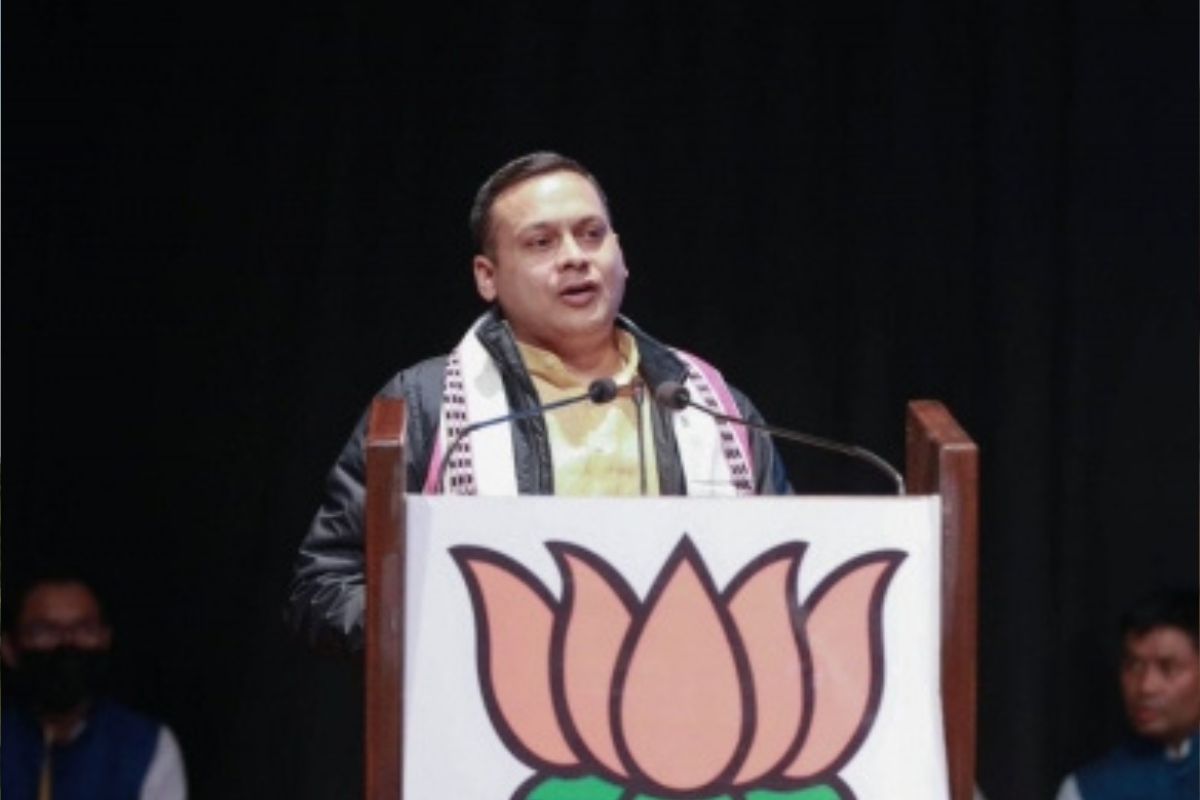BJP govt’s agenda is to transform Delhi into a ‘developed’ national capital: Sachdeva
The BJP leader asserted that the government's focus is on the completion of the long pending works in the city.
Kejriwal alleged that the central government was challenging the Supreme Court by bringing ordinance to ‘overturn’ its verdict on services matters

BJP IT cell in-charge, Amit Malviya (File Photo)
Hours after Delhi Chief Minister Arvind Kejriwal alleged that the central government was challenging the Supreme Court by bringing ordinance to ‘overturn’ its verdict on services matters, the BJP hit back saying there was no reason for so much energy to be spent on the Ordinance.
In a tweet, BJP IT cell in-charge, Amit Malviya said, “There is no reason for so much energy to be spent on the Ordinance brought in by the Central Government with respect to Delhi.”
Advertisement
Targeting the AAP leader, Malviya said, “Had Arvind Kejriwal read the Supreme Court judgement, he would have known that the said Ordinance, to be later taken up as a Bill by the Parliament has its origin in the Constitution Bench (CB) Judgment itself, which in its concluding order at para 164 ‘C’ & ‘F’ gives legislative competence over all matters in the concurrent and State Lists in relation to the National Capital Territory of Delhi (NCTD) and underlines that the executive power of NCTD with respect to the State and Concurrent List shall be subject to the executive power conferred upon the Union of India by a law enacted by the Parliament.”
Advertisement
There is no reason for so much energy to be spent on the Ordinance brought in by the Central Govt with respect to Delhi.
Had Arvind Kejriwal read the Supreme Court judgement, he would have known that the said Ordinance, to be later taken up as a Bill by the Parliament has its…
— Amit Malviya (@amitmalviya) May 20, 2023
Sharing the details, he said that para 164 ‘C’ reads, “The Legislative Assembly of NCTD has competence over entries in List-II and List-III except for the expressly excluded entries of List-II. In addition to the entries in List-I, Parliament has legislative competence over all matters in List-II & List-III in relation to NCTD…”
Para 164 ‘F’ reads, “The executive power of NCTD with respect to entries in List-II and List-III shall be subject to the executive power expressly conferred upon the Union by a law enacted by the Parliament,” he said.
“Apart from these, the CB judgment at Para 95 expressly mentions, “However, if Parliament enacts a law granting executive power on any subject which is within the domain of NCTD, the executive power of the Lieutenant Governor shall be modified to the extent, as provided in that law. Furthermore, under Section 49 of the GNCTD Act, the Lieutenant Governor and the Council of Ministers must comply with the particular directions issued by the President on specific occasions,” he said.
Defending the government, the BJP leader said, “In bringing about, this Ordinance, the Union Government has exercised the rights provided to it with regards to the governance of Delhi – The Capital of India and a Union Territory, as enunciated in the Constitution of India, as also the CB Judgment of the Supreme Court.”
“I can understand that Arvind Kejriwal has reasons to politicise Supreme Court’s order but what about journalists reporting on the matter?” he added.
Kejriwal on Saturday alleged that the central government is challenging the Supreme Court by bringing ordinance to ‘overturn’ its verdict on services matters and also said that it is an insult to its majesty.
The AAP leader also dubbed the ordinance with regard to transfers and postings of officers as “direct contempt” of Supreme Court’s order and also made an appeal to the Opposition parties to ensure that the bill is not passed in the Rajya Sabha.
The Central government has brought an ordinance to set up a permanent authority known as the National Capital Civil Service Authority whose chairperson will Delhi chief minister along with chief secretary, Delhi, Principal Secretary (Home), Delhi to make recommendations to the Delhi L-G regarding matters concerning transfer posting, vigilance and other incidental matters. However, in case of difference of opinion, the decision of the L-G shall be final.
On May 11, a five-judge constitution bench of the Supreme Court ruled that it is ideal to hold that a democratically elected Delhi government should have control over its officers and the L-G is bound by the advice of the elected government in everything other than public order, police, and land. The top court stressed that if the government is not able to control and hold to account the officers posted in its service, then its responsibility towards the legislature as well as the public is diluted.
The ordinance came after the apex court gave the Delhi government control in services matters, including transfer and posting of officers.
Advertisement